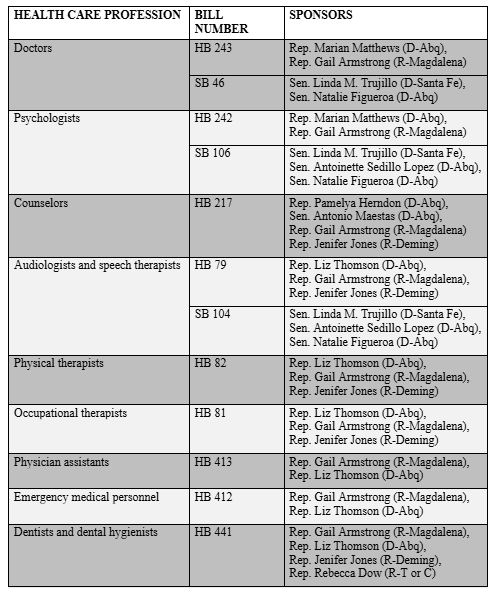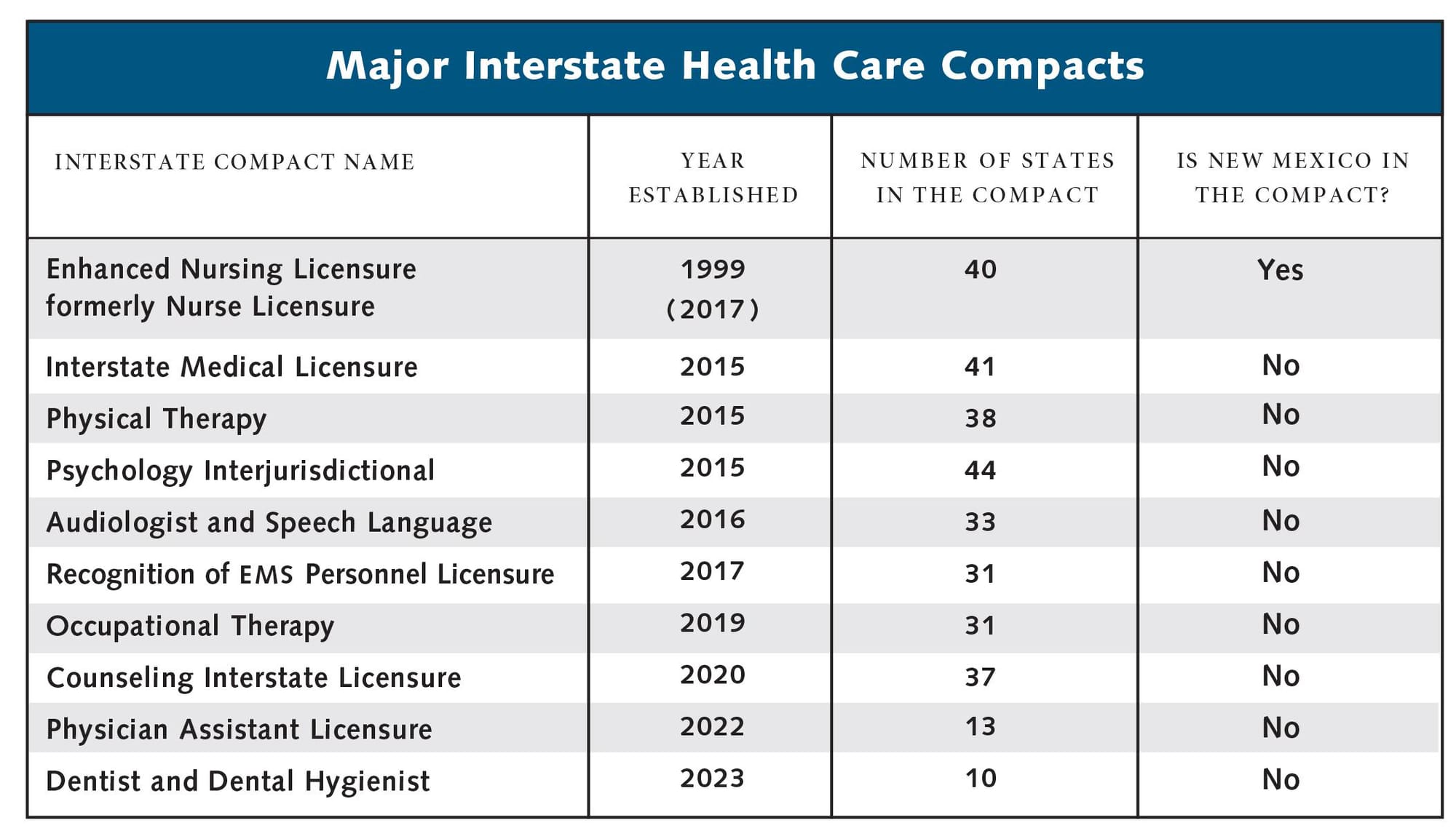New Mexico lawmakers introduce bills to join health care worker compacts
Legislation would allow out-of-state providers to work in New Mexico more easily

Organ Mountain News report
SANTA FE - A bipartisan group of 10 New Mexico legislators has introduced a series of bills aimed at joining nine interstate compacts that would allow health care professionals licensed in other states to practice in New Mexico without undergoing the state’s licensing process.
The legislation would add New Mexico to compacts covering physicians, physician assistants, psychologists, counselors, dentists and dental hygienists, emergency medical personnel, audiologists and speech therapists, physical therapists and occupational therapists.

Interstate compacts are agreements among states to recognize and accept professional licenses issued by other compact members. Without them, out-of-state health care workers must complete New Mexico’s licensing requirements, which can delay their ability to work in the state.
The nonpartisan think tank Think New Mexico identified joining these compacts as a key recommendation in its 2024 report on addressing the state’s health care worker shortage.
New Mexico is among five states that have joined only one or none of the 10 major health care licensure compacts. The state has participated in the Nurse Licensure Compact since 2003, allowing nurses to work across state lines. According to a 2018 Albuquerque Journal report, as many as 80% of nurses at some New Mexico hospitals, particularly in rural and border areas, would not be working in the state without the compact.
Neighboring states have adopted multiple health care licensure compacts — Arizona has six, Colorado 10, Oklahoma eight, Utah nine, and Texas five — allowing health care professionals to work more freely across state lines.
The New Mexico Medical Board, in its agency analysis of Senate Bill 46, noted that compact participation has led to an increase in physician licensure in other states.
“States that participate in the compact see a significant increase in physician licensure in their state, which we anticipate would occur in New Mexico,” the board stated.
The proposed legislation has support from organizations including AARP New Mexico, the U.S. Department of Defense, the Greater Albuquerque Chamber of Commerce, the League of Women Voters New Mexico and the New Mexico Public Health Association. Trade groups and governing boards for affected professions, including the New Mexico Medical Board, New Mexico Medical Society and the New Mexico Chapter of the American Physical Therapy Association, have also expressed support.
Proponents argue that joining the compacts would help address the state’s health care workforce shortage by making it easier for qualified professionals to practice in New Mexico, including through telehealth services.
“Joining the interstate compacts would immediately expand the supply of health care providers available to care for New Mexicans,” said Fred Nathan Jr., executive director of Think New Mexico. “A remarkably broad coalition has come together to support the passage of these compacts.”
Nathan noted both Planned Parenthood of the Rocky Mountains and the New Mexico Conference of Catholic Bishops have endorsed the doctor compact.
Interstate compacts include safeguards to protect patients, according to supporters. The Interstate Medical Licensure Compact, for example, allows state medical boards to maintain control over the licensure process, access a centralized database of disciplinary records and conduct FBI fingerprint-based background checks on physicians.
More information on the proposed legislation is available at www.thinknewmexico.org.

